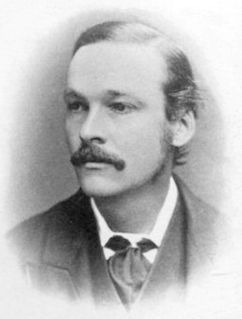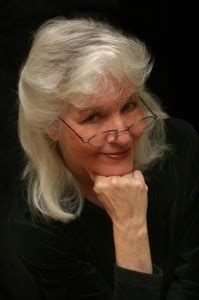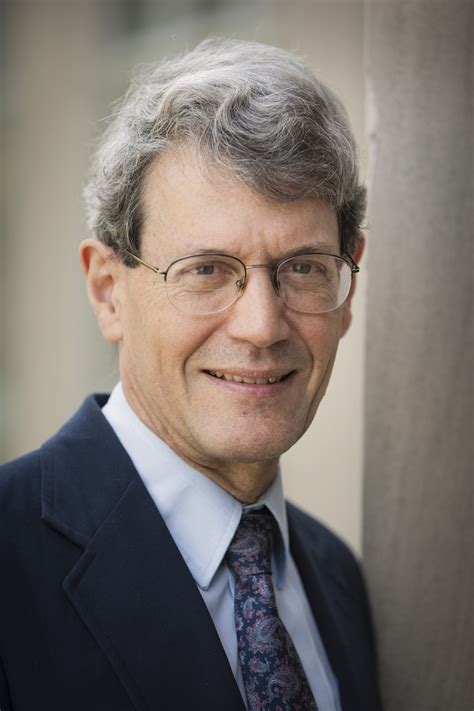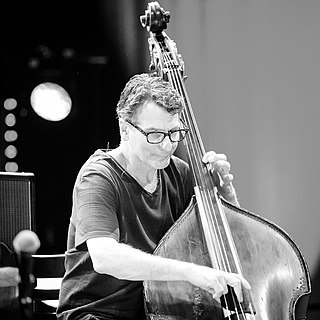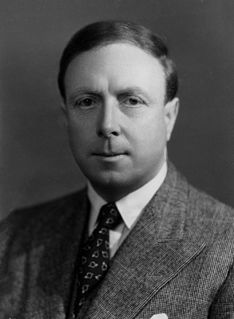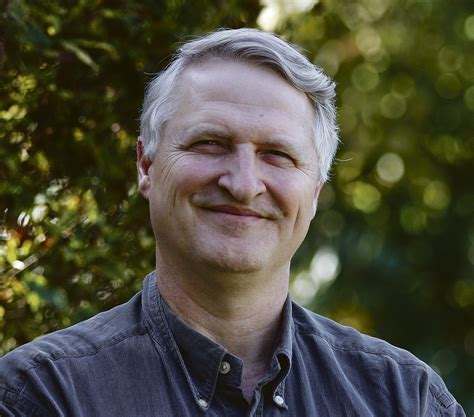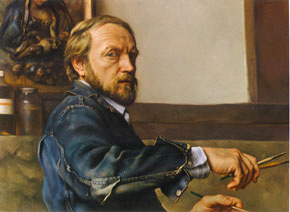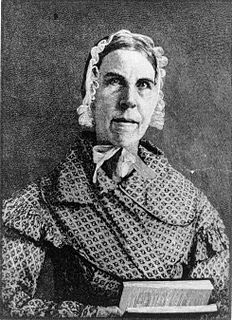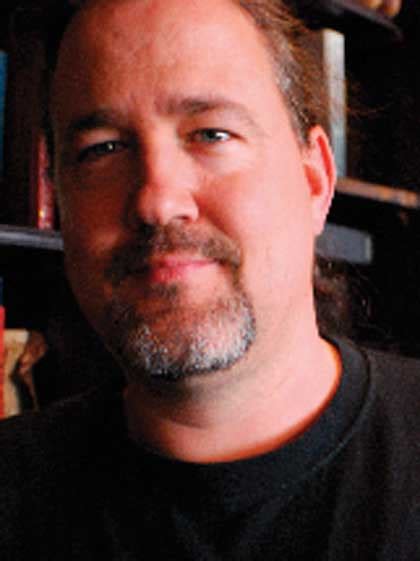Top 250 Passages Quotes & Sayings - Page 4
Explore popular Passages quotes.
Last updated on December 22, 2024.
The Phrygians select a natural hillock, run a trench through the middle of it, dig passages, and extend the interior space as widely as the site admits. Over it they build a pyramidal roof of logs fastened together, and this they cover with reeds and brushwood, heaping up very high mounds of earth above their dwellings. Thus their fashion in houses makes their winters very warm and their summers very cool.
Sometimes you write passages that don't need to be rewritten. Performance is that for me. Improvisation, things that happen in the moment, are sometimes wonderful, or wonderful as a moment to be shared between performer and people, but that's it. There might be a strong bond between you and the people, a transformative night, but as a live record it might not translate.
A single flight of planes no bigger than a wedge of geese can quickly end this island fantasy, burn the towers, crumble the bridges, turn the underground passages into lethal chambers, cremate millions... Of all targets New York has a certain clear priority. In the mind of whatever perverted dreamer might loose the lightning, New York must hold a steady, irresistible charm.
... the embryological record, as it is usually presented to us, is both imperfect and misleading. It may be compared to an ancient manuscript, with many of the sheets lost, others displaced, and with spurious passages interpolated by a later hand. ... Like the scholar with his manuscript, the embryologist has by a process of careful and critical examination to determine where the gaps are present, to detect the later insertions, and to place in order what has been misplaced.
To be honest, there are parts of 'How Literature Saved My Life' that began as interviews. Someone was telling me that they think the book sounds very phonic: that it sounds like me speaking. And I don't think it's a coincidence that there are six to ten passages that I cadged from various interviews that I did post-'Reality Hunger'.
Though nature is constantly beautiful, she does not exhibit her highest powers of beauty constantly, for then they would satiate us and pall upon our senses. It is necessary to their appreciation that they should be rarely shown. Her finest touches are things which must be watched for; her most perfect passages of beauty are the most evanescent.
After Birth is a fast-talking, opinionated, moody, funny, and slightly desperate account of the attempt to recover from having a baby. It is a romp through dangerous waters, in which passages of hilarity are shadowed by the dark nights of earliest motherhood, those months so tremulous with both new love and the despairing loss of one's identity-to read it is an absorbing, entertaining, and thought-provoking experience.
My wife is my first reader, my first line of defence I suppose. So she says, "Oh well, oh yes, it's all true." At the same time, I could have written much more about us, but I didn't want to go any further. I did cut things out. There are certain things that I wrote about her that are so gushing with praise and admiration that when I looked at those passages I realised they would be ridiculous to anybody else.
Instead of lowering your head and copping to it like a man, you pick up the journal as one might hold a bady's beshattered diaper, as one might pinch a recently benutted condom. You glance at the offending passages. Then you look at her and smile a smile your dissembling face will remember until the day you die. Baby, you say, baby, this is part of my novel. This is how you lose her.
To deny the possibility, nay, the actual existence of witchcraft and sorcery, is at once flatly to contradict the revealed word of God in various passages both of the Old and New Testament, and the thing itself is a Truth to which every nation in the world hath, in its turn, borne testimony, by either example seemingly well attested or by prohibitory laws, which at least suppose the possibility of a commerce with evil spirits.
History shows us a lot of things. It shows why the Lord's Prayer includes the supplication: "And lead us not into temptation." In my day, dissertations were still written by hand, or drummed out with a typewriter. In the past, you had to round up the literature, find the books and find the passages. Nowadays you click on Wikipedia or Google and you have everything you need. This probably makes it more difficult to resist temptation.
And here Dante describes an evidently spherical world... "The lamp of the world [the sun] rises to mortals through different passages; but through that which joins four circles with three crosses [the position of the rising sun at the vernal equinox] it issues with a better course and conjoined with better stars, and tempers and stamps the wax of the world more after its own fashion. Although such an outlet had made morning there and evening here, and all the hemisphere there was bright, and the other dark..."
Myths are stories for our search through the ages for truth, for meaning, for significance. We all need to tell our story and to understand our story. We all need to understand death and to cope with death, and we all need help in our passages from birth to live and then to death. We need for life to signify, to touch the eternal, to understand the mysterious, to find out who we are.
I do know I'm going to heaven. I have read all of the Scriptures and the passages that define paradise and things like that. To me, what matters is I'm going to be with Jesus and I'm going to be in his presence. Every knee will bow and every tongue will confess. At that point, you know some to judgment, some to salvation.
However global I strove to become in my thinking over the past twenty years, my sons kept me rooted to an utterly pedestrian view,intimately involved with the most inspiring and fractious passages in human development. However unconsciously by now, motherhood informs every thought I have, influencing everything I do. More than any other part of my life, being a mother taught me what it means to be human.
The child had indeed shut up but all the questions that had accumulated on his tongue circulated in his mouth, moved through the passages of his nose and climbed up from there to tickle into his teardrop ducts, so in his moss green pupils, curious, insistent, accusing sparks of questions continued to light up and fade away like fireflies flitting about on summer nights.
The Bible is all God's speech, as well as all mediated through human writers who wrote the individual books. It's a mistake to try to separate passages into a divine piece and a human piece. Rather, we should treat the Bible for what it is: divine and human all the way through. Of course God can quote human sinful speech, or describe human sinful actions, without implying that he approves them.
When I was young I had an elderly friend who used often to ask me to stay with him in the country. He was a religious man and he read prayers to the assembled household every morning. But he had crossed out in pencil all the passages that praised God. He said that there was nothing so vulgar as to praise people to their faces and, himself a gentleman, he could not believe that God was so ungentlemanly as to like it.
Several factors besides skill are more significant in professional writers than in most amateurs. One is love of the surface level of language: the sound of it; the taste of it on the tongue; what it can be made to do in virtuosic passages that exist only for their own sake, like cadenzas in baroque concerti. Writers in love with their tools are not unlike surgeons obsessed with their scalpels, or Arctic sled racers who sleep among their dogs even when they don't have to.
We found in the course of our journey the convenience of having disencumbered ourselves, by laying aside whatever we could spare; for it is not to be imagined without experience, how in climbing crags and treading bogs, and winding through narrow and obstructed passages, a little bulk will hinder, and a little weight will burden; or how often a man that has pleased himself at home with his own resolution, will, in the hour of darkness and fatigue, be content to leave behind him everything but himself.
Orthodox Jews, or, as they are known in the Talmud, the Really Chosen Ones, are committed to the idea that the entire Torah was dictated by God verbatim to Moses at Mount Sinai... Other forms of Judaism dispute this claim, although it does explain certain passages in the first Torah, such as, I'm sorry, am I boring you? and What do you like better, Moses, Lord Almighty or Big Hoohah?
It is really refreshing to hear a big band that has the ability to execute ensemble passages with swing and precision while retaining a "small group" feel during the solo sections. This kind of "tight, loose" approach is seldom heard in big bands, whether they are professional or not. Now, all the band needs is to hit the road and take the music around the world!
I believe there is complete equality between men and women. And I believe those passages in the New Testament, not by Jesus, but by Paul, that say women should not adorn themselves, they should always wear hats or color their hair in church - things like that - I think they are signs of the times and should not apply to modern-day life.
A transition from an author's book to his conversation is too often like an entrance into a large city, after a distant prospect. Remotely, we see nothing but spires of temples and turrets of palaces, and imagine it the residence of splendour, grandeur, and magnificence; but when we have passed the gates, we find it perplexed with narrow passages, disgraced with despicable cottages, embarrassed with obstructions, and clouded with smoke.
When I heard the book (Thomas Friedman's latest) was actually coming out, I started to worry. Among other things, I knew I would be asked to write the review. The usual ratio of Friedman criticism is 2:1, i.e., two human words to make sense of each single word of Friedmanese. Friedman is such a genius of literary incompetence that even his most innocent passages invite feature-length essays.
That the system of morals propounded in the New Testament contained no maxim which had not been previously enunciated, and that some of the most beautiful passages in the apostolic writings are quotations from Pagan authors, is well known to every scholar... To assert that Christianity communicated to man moral truths previously unknown, argues on the part of the asserted either gross ignorance or wilful fraud.
Protestant parents still keep a Bible handy in the house, so that the children can study it, and one of the first things the little boys and girls learn is to be righteous and holy and not piss against the wall. They study those passages more than they study any others, except those which incite to masturbation. Those they hunt out and study in private.
I found out - the paper used to go to bed on Tues - on Monday. I found out that on Monday nights, the editors would cut out - literally cut out passages, sometimes whole paragraphs, of some of the writers that might possibly offend blacks, lesbians, gays, radicals. And I wrote a couple of columns about that. And they're - of course, they were annoyed that I had written about it, but, I mean, it - another example - and [my wife Margot] always also conjured that.
The Southern Baptist Convention, as you know, decided in the year 2000 that women should not be permitted to be pastors or deacons or chaplains in the military service. Some Southern Baptist seminaries don't even permit women to teach male students. I don't agree with that. But they can go in and quote a few passages of Paul that women should be restricted in their services.
Nothing has a greater tendency to lessen the reverence which mankind ought to have for the Supreme Being, than a careless repetition of his name upon every trifling occasion . . . . To prevent this profanation, such passages are selected from scripture, as contain some important precepts of morality and religion, in which that sacred name is seldom mentioned. Let sacred things be appropriated to sacred purposes.
My readers, who may at first be apt to consider Quotation as downright pedantry, will be surprised when I assure them, that next to the simple imitation of sounds and gestures, Quotation is the most natural and most frequent habitude of human nature. For, Quotation must not be confined to passages adduced out of authors. He who cites the opinion, or remark, or saying of another, whether it has been written or spoken, is certainly one who quotes; and this we shall find to be universally practiced.
As a breath of wind or some echo rebounds from smooth, hard surfaces and returns to the source from which it issued, so the stream of beauty passes back into its possessor through his eyes, which is its natural route to the soul; arriving there and setting him all aflutter, it waters the passages of the feathers and causes the wings to grow, and fills the soul of the loved one in his turn with love.
Life is no straight and easy corridor along which we travel free and unhampered, but a maze of passages, through which we must seek our way, lost and confused, now and again checked in a blind alley. But always, if we have faith, a door will open for us, not perhaps one that we ourselves would ever have thought of, but one that will ultimately prove good for us
Blood had long since ceased to beat from one end to the other, but one could sense, from passages marked with fresher traces of wheels and hooves, that once the meaning and even the very idea of a long journey was lost, sleep had not descended over it in one fell swoop: it had continued to steal a march here and there, in a discontinuous way, and over short distances, like a laborer who feels his cart jolt on a section of Roman road that crosses his field.
I wish you hadn't been so over-courteous about putting the inscription on a card instead of on the flyleaf. It's the bookseller coming out in you all, you were afraid you'd decrease its value. You would have increased it for the present owner. (And possibly for the future owner. I love inscriptions on flyleaves and notes in margins, I like the comradely sense of turning pages someone else turned, and reading passages someone long gone has called my attention to.)
What could you do better for your children and your children's children than to record the story of your life, your triumphs over adversity, your recovery after a fall, your progress when all seemed black, your rejoicing when you had finally achieved? Some of what you write may be humdrum dates and places, but there will also be rich passages that will be quoted by your posterity.
I look upon every good man, as a good book, lent by its owner for another to read, and transcribe the excellent notions and golden passages that are in it for his own benefit, that they may return with him when the owner shall call for the book again: but in case this excellent book shall be thrown into a corner and no use made of it, it justly provokes the owner to take it away in displeasure. --Funeral of John Upton, Esq
By surviving passages of doubt and depression on the vocational journey, I have become clear about at least one thing: self-care is never a selfish act -- it is simply good stewardship of the only gift I have, the gift I was put on earth to offer to others. Anytime we can listen to true self and give it the care it requires, we do so not only for ourselves but for the many others whose lives we touch.
An ignorant man believes that the whole universe only exists for him: as if nothing else required any consideration. If, therefore, anything happens to him contrary to his expectation, he at once concludes that the whole universe is evil. If, however, he would take into consideration the whole universe, form an idea of it, and comprehend what a small portion he is of the Universe, he will find the truth. There are many ... passages in the books of the prophets expressing the same idea.
Adrian Rogers told us as often as he could he took the Bible literally. He illustrated by saying he believed the world was created in six 24-hour days. And he repeated this to make an impression upon us. In private (Jerry Vines was with us), I asked Rogers what he did with the slavery passages of the New Testament. Did he take them literally? He paused and said, 'Well, I believe slavery is a much-maligned institution. If we had slavery today, we would not have this welfare mess.'
I was taken in the Spirit to the burning bush on Mount Horeb, Moses' "first ascension," and allowed to witness the encounter he had with the Lord there. Throughout the visitation, I was enabled to know and feel the thoughts and emotions of Moses' inner being. ... There was a Holy Narrator beside me who helped me understand what I saw and heard, and he made references to relevant passages of Scripture. There were other Biblical figures also present - Joshua, Samuel, David, and even the Lord Jesus were there.
I want people to fill their minds with passages of Scripture while they are well and strong, that they may have sure help in the day of need. I want them to be diligent in studying their Bibles, and becoming familiar with its contents, in order that the grand old Book may stand by them and talk with them when all earthly friends fail.
Tis the good reader that makes the good book; in every book he finds passages which seem confidences or asides hidden from all else and unmistakenly meant for his ear; the profit of books is according to the sensibility of the reader; the profoundest thought or passion sleeps as in a mine, until it is discovered by an equal mind and heart.
The music of the supreme architect, Bach, is filled with pages of discursive argument and rumination, glorifying the nameless whole by a rich embroidery of passages which lead everywhere and nowhere. The ideas are presented, stood on their head, dissolved into fragments, until the ultimate message becomes the connections of all things great and small, a chain of being which cannot be secured until the last note is in place.
I know not a better rule of reading the Scripture, than to read it through from beginning to end and when we have finished it once, to begin it again. We shall meet with many passages which we can make little improvement of, but not so many in the second reading as in the first, and fewer in the third than in the second: provided we pray to him who has the keys to open our understandings, and to anoint our eyes with His spiritual ointment.
I don't think it is enough appreciated how much an outdoor book the Bible is. It is a "hypaethral book," such as Thoreau talked about - a book open to the sky. It is best read and understood outdoors, and the farther outdoors the better. Or that has been my experience of it. Passages that within walls seem improbable or incredible, outdoors seem merely natural. This is because outdoors we are confronted everywhere with wonders; we see that the miraculous is not extraordinary but the common mode of existence. It is our daily bread.
At any rate, if evolution turns out to be true, then the Christian should embrace it as one dedicated to following the truth wherever it leads. This might mean reworking his interpretation of Genesis on the subject-much like Christians have had to rework their interpretation of biblical passages referring to the sun rising and setting, the earth not moving, or the earth resting on foundations.
Every one ought to study the Bible with two ends in view: his own growth in knowledge and grace, and passing it on to others. We ought to have four ears,- two for ourselves, and two for other people. My Bible is worth a good deal to me because I have so many passages marked that, if I am called upon to speak at any time, I am ready. We ought to be prepared to pass around heavenly thoughts and truths, just as we do the coin of the realm.
I find it expressed in various passages of Scripture that the fact that God knows things while in a state of possibility, when their existence belongs to the future, does not change the nature of the possible in any way; that nature remains unchanged; and the knowledge of the realisation of one of several possibilities does not yet effect that realisation. This is likewise one of the fundamental principles of the Law of Moses concerning which there is no doubt nor any dispute.
I think of music a lot when I paint. The theme of it to a degree is music. So instead of literally putting in music or literally putting in a musical instrument, I use only a hint of the instrument, but the brocaded pattern is like a line of Bach because of its order and the leaves going up are like passages from Vivaldi, and the emphasis on drapery is where the sound comes.
[On the New Testament:] I ... must enter my protest against the false translation of some passages by the men who did that work, and against the perverted interpretation by the men who undertook to write commentaries thereon. I am inclined to think, when we [women] are admitted to the honor of studying Greek and Hebrew, we shall produce some various readings of the Bible a little different from those we now have.
In my experience when critics raise these objections, they invariably violate one of seventeen principles for interpreting the Scriptures....For example, assuming the unexplained is unexplainable....failing to understand the context of the passage....assuming a partial report is a false report...neglecting to interpret difficult passages in light of clear ones; basing a teaching on an obscure passage; forgetting that the Bible uses nontechnical, everyday language; failing to remember the Bible uses different literary devices.
The Word of God makes use of poetic imagery when discussing... formless intelligences but... it does not do so for the sake of art, but as a concession to the nature of our own mind. It uses scriptural passages in an uplifting fashion as a way, provided for us from the first, to uplift our mind in a manner suitable to our nature.
The very cheapness of literature is making even wise people forget that if a book is worth reading, it is worth buying. No book is worth anything which is not worth much; nor is it serviceable, until it has been read, and re-read, and loved, and loved again; and marked, so that you can refer to the passages you want in it.
The Christian view that all intercourse outside marriage is immoral was, as we see in the above passages from St. Paul, based upon the view that all sexual intercourse, even within marriage, is regrettable. A view of this sort, which goes against biological facts, can only be regarded by sane people as a morbid aberration. The fact that it is embedded in Christian ethics has made Christianity throughout its whole history a force tending towards mental disorders and unwholesome views of life.
There are passages and doors And Realms that lie unseen. There are Roads both wide and narrow And no avenue between. Doors Remain closed for those Who in sad vanity yet hide. Yet when Belief is chosen, The key appears inside. What is lived now will soon pass, And what is not will come to Be. The Door Within must open, For one to truly see. Do you see? Believe and enter.
A detective novel should contain no long descriptive passages, no literary dallying with side-issues, no subtly worked-out character analyses, no 'atmospheric' preoccupations. Such matters have no vital place in a record of crime and deduction. They hold up the action and introduce issues irrelevant to the main purpose, which is to state a problem, analyze it, and bring it to a successful conclusion. To be sure, there must be a sufficient descriptiveness and character delineation to give the novel verisimilitude.




